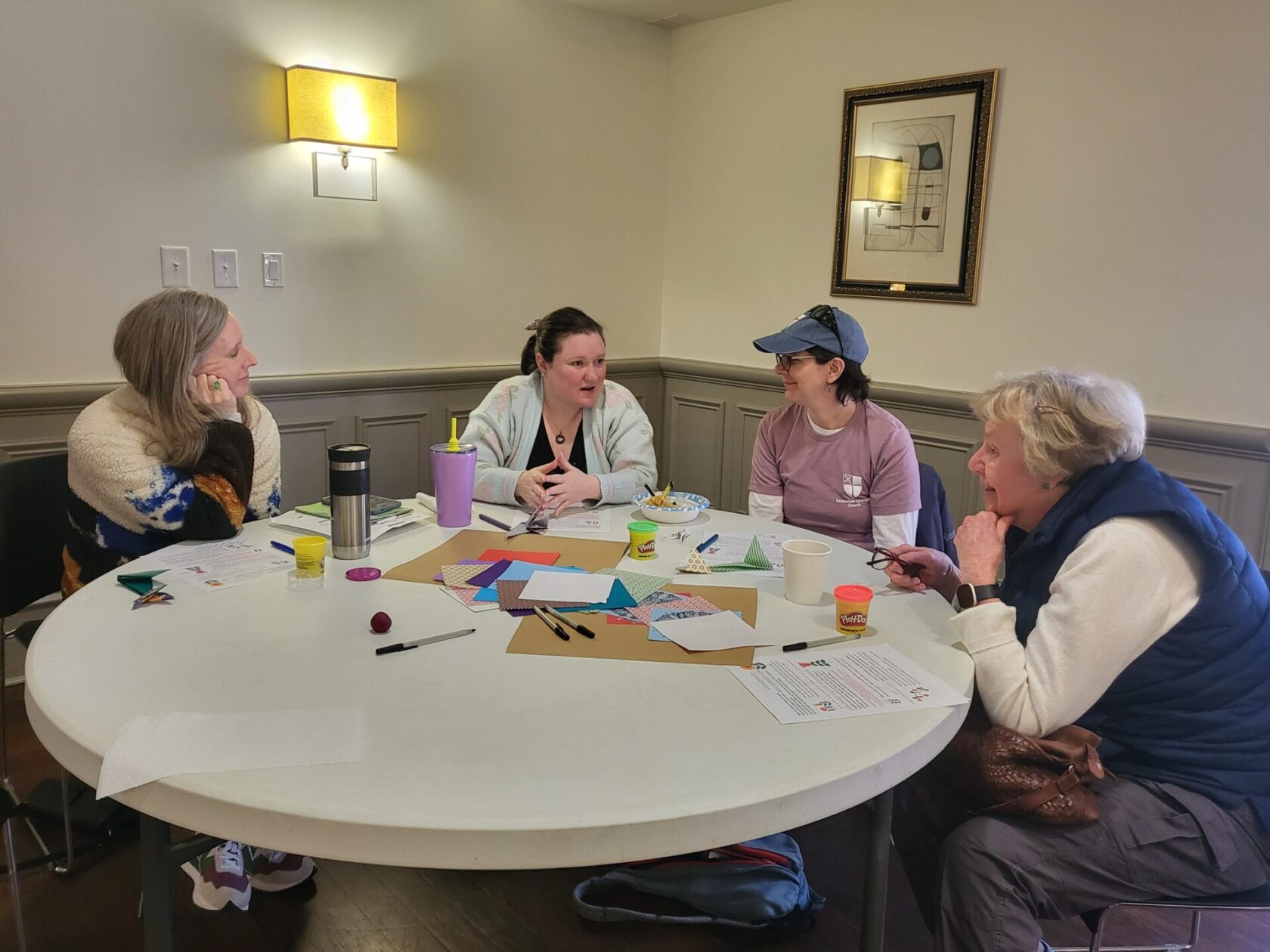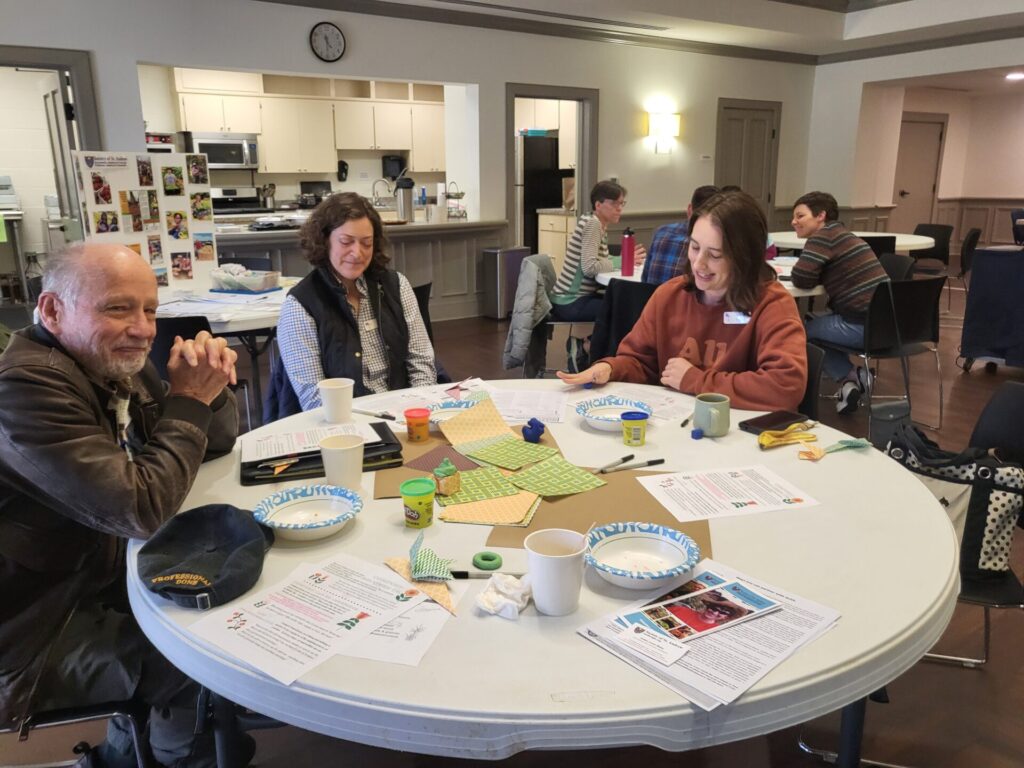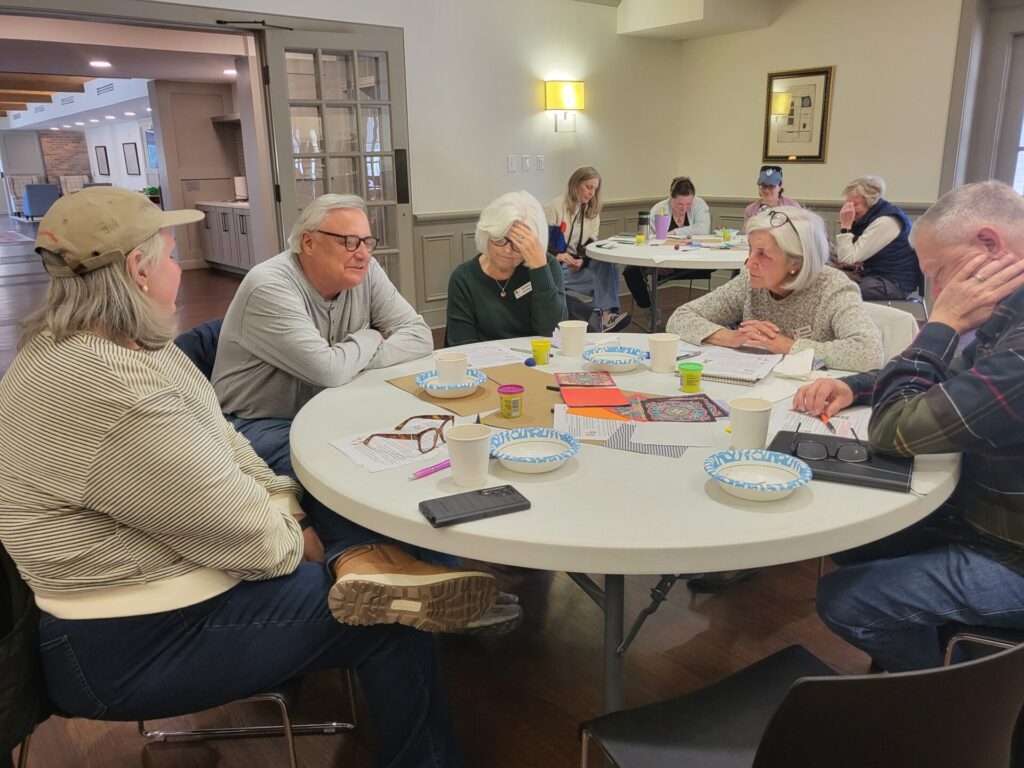
Diocesan Task Force for Creation Care Invites Continued Reflection on Sustainable Practices

Creation care is more than just a call to preserve the environment; it’s a spiritual discipline that invites us to deepen our relationship with God, with one another, and with the earth. As stewards of God’s creation, we are called not only to care for the earth, but to honor it as sacred. This practice of tending to creation is rooted in our faith, grounded in the understanding that everything God made is “Good” and that we are co-creators with God, responsible for nurturing and protecting the earth.
Earlier last month, around 20 people gathered at Holy Trinity Church in Auburn to explore how composting can serve as a spiritual discipline. Through hands-on learning and thoughtful conversation, participants reflected on how the process of gathering, turning, waiting for, and using compost mirrors the rhythms of spiritual growth. Lesley Lowe Weiss, East Alabama Gleaning Coordinator for the Society of St. Andrew, also gave a powerful presentation on food waste in the United States and globally, highlighting the opportunities we have to reduce waste, care for our environment, and support our neighbors in need.

Lyn Causey, a Coordinator Holy Trinity, Auburn reflecting on the time together shared:
“It was informative, engaging, and thought-provoking. I only wish that we had scheduled more time. Thank you so much for coming to Auburn to do the Compost as Spiritual Discipline workshop.“
Per the US Environmental Protection Agency, “composting is the managed, aerobic (oxygen-required) biological decomposition of organic materials by microorganisms.” In lay terms, composting, particularly home composting or backyard composting, is the process where food and lawn scraps are collected in a specific location, so that they might break down over time – usually with the help of bugs and air circulation from turning the collected scraps – and the resulting compost can be used to feed or nourish other growing things such as ornamental plants or vegetables. After collecting scraps for several months, the pile needs to be tended, but not contributed to, while the process of decomposition occurs.
So what does all that have to do with our spiritual life? A lot, it turns out. Compost is like a prayer we offer with our hands. Through the work we do of gathering scraps, turning compost, or spreading it in a garden, we offer prayers for fertility, life, and flourishing. We can be reminded of provision, we might pray for new life or new opportunities, we might be reminded that everything – even the scraps we often think of as trash – was created and called by God: “Good!”

Taking out and turning compost takes time. This actual time of turning over waste to generate nutrients offers us time to meditate on the way God turned over death and, through grace, offers resurrection. You can’t skip this or rush it. And by using the time required to tend your compost for meditation you might be continually reminded of resurrection and grace.
Compost needs to be cared for or it can stink. It might need more of one type of scrap or another. It might need to be turned or stirred. It might need more air or more heat. A lot of times it seems easier to just throw stuff out and not have to deal with it. That seems like the story of Scripture too – Scripture is often about people who had been thrown out or marginalized. But God had a better plan. God has a better plan. Because compost transforms everything and nothing is wasted, it can remind us of the ongoing process of creation – and co-creation – God isn’t done yet and neither are we. Thanks be to God!
If your organization or parish might be interested in hosting a workshop with the Diocesan Task Force for Creation Care, we’d love to brainstorm ideas with you! What’s so amazing about polar bears? What can we learn from monarch migration? A quiet day with prompts from surprisingly noisy nature? What is the relationship between polluted places and marginalized populations? For kids or adults or all ages, we’d love to join you for an hour or a weekend to talk about our role as stewards of all creation. Contact the Rev. Sarah Smith Halloran at rector@graceepiscopalpikeroad.org to find out more.
The author is the Rev. Sarah Smith Halloran, Chair of the Diocesan Task Force for Creation Care and rector, Grace Church, Pike Road